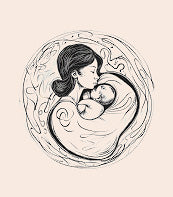Evaluation
The donor is well-reflected about his decision and has spent a long time considering the consequences before choosing to donate.
Intelligence:
He has cognitive resources on par with the average population and is reasonably quick to learn new things and analyze complex problems.
Personality:
In terms of personality, the donor is characterized by being empathetic, energetic, helpful and extroverted. He enjoys spending time with others in many different settings. He will occasionally need some time to be by himself but prefers social activities. To others he will seem very approachable, warm and caring. He has an easy time making new acquaintances and will most likely be seen as diplomatic, trusting and transparent to others.
The donor is not a dominating presence in social settings unless the situation specifically calls for it. He prefers taking a back seat most of the time and letting others take charge. He is more concerned with others having their needs met rather than tending to his own desires and agendas. He has a sympathetic mindset and will help where he can, which also means he often doesn’t prioritize himself. He can express disagreement if a conversation goes in a direction where he has clear moral differences with others.
The donor can have a tendency to let the weight of other people’s problems be on his shoulders. He is adept at listening to others and being caring. He tends to steer clear of conflict and would most of the time much rather keep a good relationship with others than be critical and risk damaging a friendship.
The donor is good at controlling his own impulses and regulating himself to fit the mood and behavior of those around him. He is self-conscious, mostly in new and unknown situations, and will strive to act in way where he doesn’t risk embarrassing himself. The donor is (to some degree) concerned with how others view him, which gives him a good ability to sense the attitudes of others. This might also affect his ability to be himself completely, especially in new social relationships and when he has a feeling of high expectations around him. At exams, for example, this has become more apparent as he has gotten older. As he gets to know people better, he will tend to relax more and be more comfortable in his own skin. With close friends he can make decisions and seek to influence the group to a higher degree.
Values and interests:
At heart, the donor has a positive outlook on life. He is primarily optimistic about his future and can put a positive spin on adverse events for others. He might be a bit too optimistic with his time now and then. While optimism is what most people will see from the donor, on the inside he can worry to some degree and analyze situations from a ‘worst case scenario’-mindset. He is self-critical and sets high expectations for himself, which is a force for improvement.
While the donor can sometimes get hung up on mistakes that he makes, or feel guilt over situations of which he has no control, he is fundamentally intent on bettering himself for the benefit of others. He is good at analyzing mistakes and taking in feedback where others might tend to be satisfied with their results and leave it at that.
He is reflective, open-minded and curious about many things in life, including politics, tradition, religion and abstract problems. He enjoys intellectual stimulation and friendly discussions with others. He rarely shows any temper to speak of, and when he is angry, others might not notice due to his tendency to keep a lid on himself and not be a burden to those around him.
Work moral and self perception:
The donor has a fundamental sense of competency in what he does, but also recognizes that there are things he cannot do. Where some might brazenly accept tasks they have no experience with, the donor has a realistic approach to where he offers his time and service. He is not an organized individual in a general sense, but does enjoy cleaning up his room from time to time. He is less structured than most, and the donor is mostly driven to perform and take on responsibility in areas he has a passion for. When he agrees to do something, that deal is upheld, but he can be very selective about where he puts in a serious effort.
The donor can be viewed by others as someone who doesn’t always live up to his full potential.
He sets high standards for himself and is working on breaking up life goals into smaller sections, so that he might actually accomplish what he sets out to do. The donor has a fair risk of disappointing himself and not achieving most personal goals.
It is contextual whether he acts on intuition or through serious reflections, but he has the capacity for both. The donor has a hard time compared to others motivating himself to do tasks or chores that has little meaning for him.
Load More












